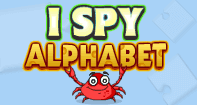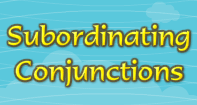×
Change Avatar
Subordinating Conjunctions
console:
Subordinating Conjunctions
What Are Subordinating Conjunctions?
Subordinating conjunctions show up when you need to join dependent and independent clauses. They’re most commonly used when you want to demonstrate cause and effect or other relationships.
What are some examples?
There are lots of subordinating conjunctions as you can see by the list below. But the most commonly used are:
Other subordinating conjunctions include, but aren’t limited to: as far as, as if, as long as, as soon as, as though, assuming that, even if, even though, when, where, wherever, even though, every time, if, in case, in case that, in order that, now that, lest, once, only if, provided that, rather, rather than, so, so that, than, unless, until, whatever, where, whether, when, whenever, which, whichever, who, whoever, whom, whomever, & whose.
Often you can think of subordinating conjunctions in terms of groups based on the information that they help to provide. Take a look at this chart:
Commonly Used Subordinating Conjunctions
| Subordinating Conjunction | Example |
|---|---|
| after | After the baseball game, we all went for pizza. |
| although | Although my favorite color is red, I prefer to wear yellow most days. |
| as | Everyone was feeling more confident as we continued to study for the test. |
| because | My favorite team is the Rockets because my dad loved them as a boy. |
| before | I remembered to wash my hands before we ate dinner. |
| since | Since Halloween is over, I’m going to start preparing for Christmas. |
| though | We love to eat desserts though we could eat fruit instead. |
| until | Until I was in 1st grade, I wasn’t able to tie my shoes. |
| whereas | Charlie loved mathematics whereas her cousin Rhys preferred history. |
| while | While we waited in line, my best friend and I played a hand-slap game. |
Often you can think of subordinating conjunctions in terms of groups based on the information that they help to provide. Take a look at this chart:
| Condition | Concession | Comparison |
|---|---|---|
| assuming that | although | as much as |
| if | even though | rather than |
| only if | though | than |
| provided that | whereas | |
| unless | whether |
| Manner | Place | Reason |
|---|---|---|
| as if | where | as |
| as though | wherever | because |
| how | in order to/that | |
| since | ||
| so that |
| Relative Adjectives | Relative Pronouns | Time |
|---|---|---|
| that | who | after |
| whatever | whoever | as soon as |
| which | whom | now that |
| whichever | whomever | until |
| whose | whenever |
Can an adverb be a conjunction?
Yes! Several of the words above can be adverbs as well, but serve as subordinating conjunctions when they link two thoughts.
Here’s an example:
I thought the wallaby was a weird marsupial until I saw the platypus.
The independent clause: I thought the wallaby was a weird marsupial.
The dependent clause: Until I saw the platypus
The dependent clause cannot stand by itself as a sentence, but using the subordinating conjunction until enables the two clauses to be linked together for a complete thought.
Here’s an example:
I thought the wallaby was a weird marsupial until I saw the platypus.
The independent clause: I thought the wallaby was a weird marsupial.
The dependent clause: Until I saw the platypus
The dependent clause cannot stand by itself as a sentence, but using the subordinating conjunction until enables the two clauses to be linked together for a complete thought.
QUICK TIP!
The subordinating conjunction must always stay with the dependent clause in the sentence, and uses a comma when it starts the sentence.
Until I saw the platypus, I thought the wallaby was a weird marsupial.
After we went to the zoo, my sister became obsessed with animals.










